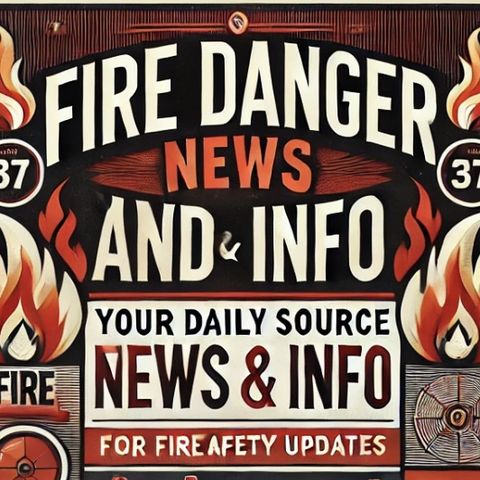Pioneering Wildfire Research: USGS Leads the Charge in Mitigating Devastation Across the Western US

Scarica e ascolta ovunque
Scarica i tuoi episodi preferiti e goditi l'ascolto, ovunque tu sia! Iscriviti o accedi ora per ascoltare offline.
Pioneering Wildfire Research: USGS Leads the Charge in Mitigating Devastation Across the Western US
Questa è una trascrizione generata automaticamente. Si prega di notare che non è garantita la completa accuratezza.
Descrizione
Wildfires have become an increasingly frequent and devastating occurrence in the western United States, transforming landscapes and threatening communities, wildlife, and natural resources across the region. As climate change exacerbates...
mostra di piùUSGS scientists conduct extensive research in diverse areas pivotal to comprehending and combating wildfires. Among these are fire behavior modeling, landscape resilience, post-fire recovery, and the impacts of fires on water quality and ecosystems. By accurately simulating fire spread and behavior, USGS models can predict how wildfires will evolve, enabling rapid and informed decision-making for firefighting and evacuation efforts. Understanding the mechanics of fire spread also aids in developing fire-resistant landscapes through more effective land management practices.
A significant part of USGS's work involves using remote sensing technologies and geographic information system (GIS) tools. These technologies provide high-resolution images and real-time data on fire conditions, which are essential for both pre-fire planning and tracking active fire fronts. Satellite data helps identify areas most at risk and track changes in vegetation and soil conditions that may affect fire behavior. This dataset also plays a key role in assessing post-fire impacts and aiding in ecological recovery.
Post-fire, USGS is heavily involved in studying the effects on soil stability, vegetation recovery, and hydrological systems, which are critical for preventing secondary disasters such as landslides and flooding—common consequences of wildfires in mountainous areas. By analyzing these effects, USGS helps forecast potential risks and inform rehabilitation efforts. Ecosystem and habitat restoration projects also benefit from such research, as accurate assessments of damage guide recovery strategies aimed at maintaining biodiversity and ecological health.
Moreover, USGS collaborates with local, state, and federal agencies to disseminate its findings and incorporate scientific knowledge into policy and firefighting tactics. Their collaboration extends to researching the impacts of fires on human health, infrastructure, and changes in the atmospheric composition, which further underscores the complex relationship between wildfires and society.
The USGS Wildland Fire Science initiative is an essential resource for policymakers, land managers, and the public. Through continued research and technology development, USGS aims to reduce the hazard of wildfires and address their multifaceted impacts on the western United States. For more insight into the critical work being done, the USGS Wildland Fire Science webpage offers detailed information on ongoing projects and breakthroughs in fire science.
Informazioni
| Autore | QP-4 |
| Organizzazione | William Corbin |
| Sito | - |
| Tag |
Copyright 2024 - Spreaker Inc. an iHeartMedia Company
